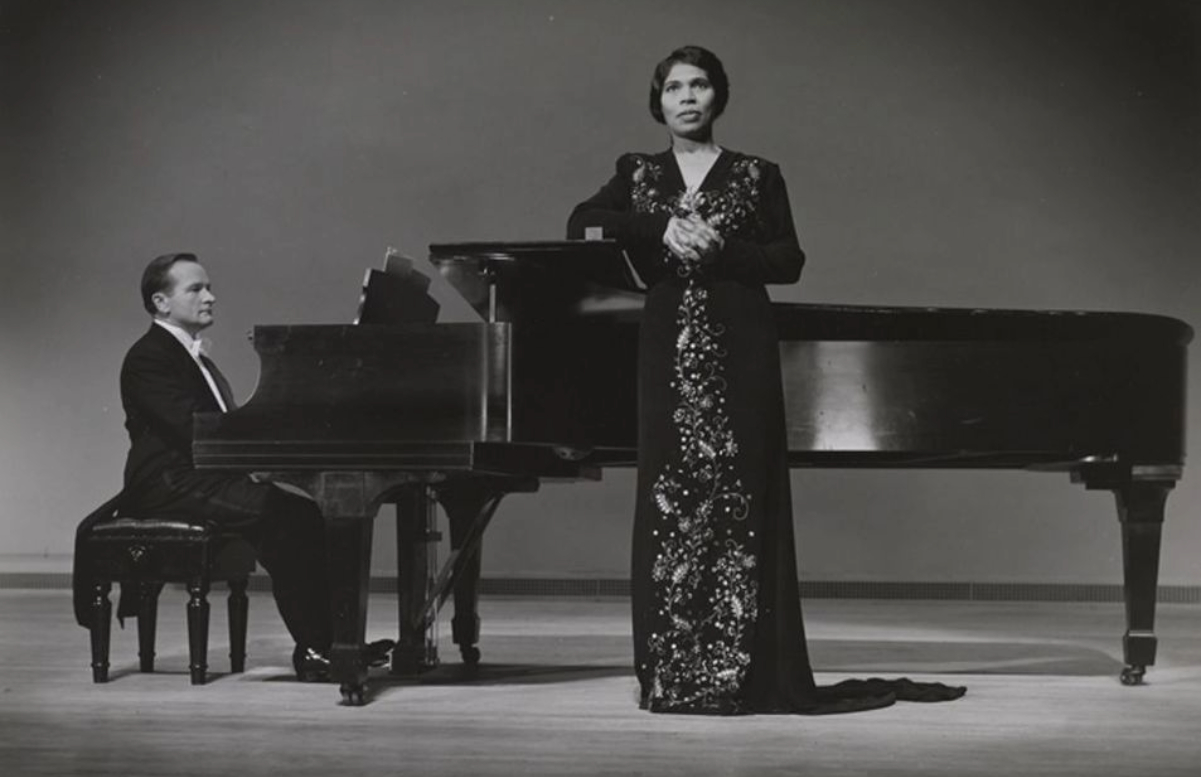The Philadelphia Orchestra’s concert hall is being renamed to honor legendary opera singer and civil rights icon Marian Anderson through a $25 million gift from supporters who bought the soon to expire naming rights to name it after her.
The rededication is the result of the philanthropy of Richard Worley and Leslie Ann Miller, who purchased the naming rights not for themselves but to honor the late Philadelphia-born contralto’s legacy. Verizon currently holds the soon to expire naming rights.
As part of the rededication, Philadelphia Orchestra leaders said the group will also partner with the United Negro College Fund to endow a new scholarship program in Anderson’s name. Scholarships from the Marian Anderson scholarship fund will be awarded each year to two Black students from the Philadelphia region intent on pursuing careers in the performing arts or arts administration.
“History cannot be rewritten, but there are many ways that music and the musical world can serve to right historic wrongs. The rededication of the home of the Philadelphia Orchestra is the crescendo of one history lesson, and it will be a celebration in perpetuity of a great Black American artist,” said Matias Tarnopolsky, the orchestra’s president and CEO.
Worley and Miller are longtime philanthropists in Philadelphia, he being an investment banker and she a prominent attorney. Both have served on numerous nonprofit boards in the region including the Philadelphia Orchestra board of trustees, of which Worley served as president for 10 years and has been a member for 27 years. Their recent gift is among the largest the orchestra has ever received.
“She (Anderson) was an inspiration, not only because of her enormous talent but also because of the courage and grace with which she battled a lifetime of discrimination. The city owes her recognition and thanks,” the couple said via a statement.
Anderson, a granddaughter of enslaved Americans, became a symbol of the civil rights struggle in April 1939 when she was barred by Daughters of the American Revolution (DAR) from performing at DAR’s Constitution Hall in Washington, D.C. because of her race. Days later, Anderson performed from the steps of the Lincoln Memorial before an integrated Easter Sunday crowd of more than 75,000 people and a radio audience of millions.
The episode became a defining moment in the struggle to overcome racial prejudice in America and led then-First Lady Eleanor Roosevelt to resign her membership from DAR in protest. In the years that followed, leaders of DAR sought to make amends and hosted a number of performances by Anderson including a war-benefit concert she gave there in 1943. The group formally ended its racial ban in 1952 and today has a page on its website dedicated to Anderson.
Despite the prejudice she faced, Anderson performed with numerous renowned orchestras throughout the United States and Europe during her 96 years of life. She also sang more than a dozen times with the Philadelphia Orchestra including her first time in 1918 when she was just 21 years old. The orchestra will officially rededicate Marian Anderson Hall with a gala and concert on June 8.











